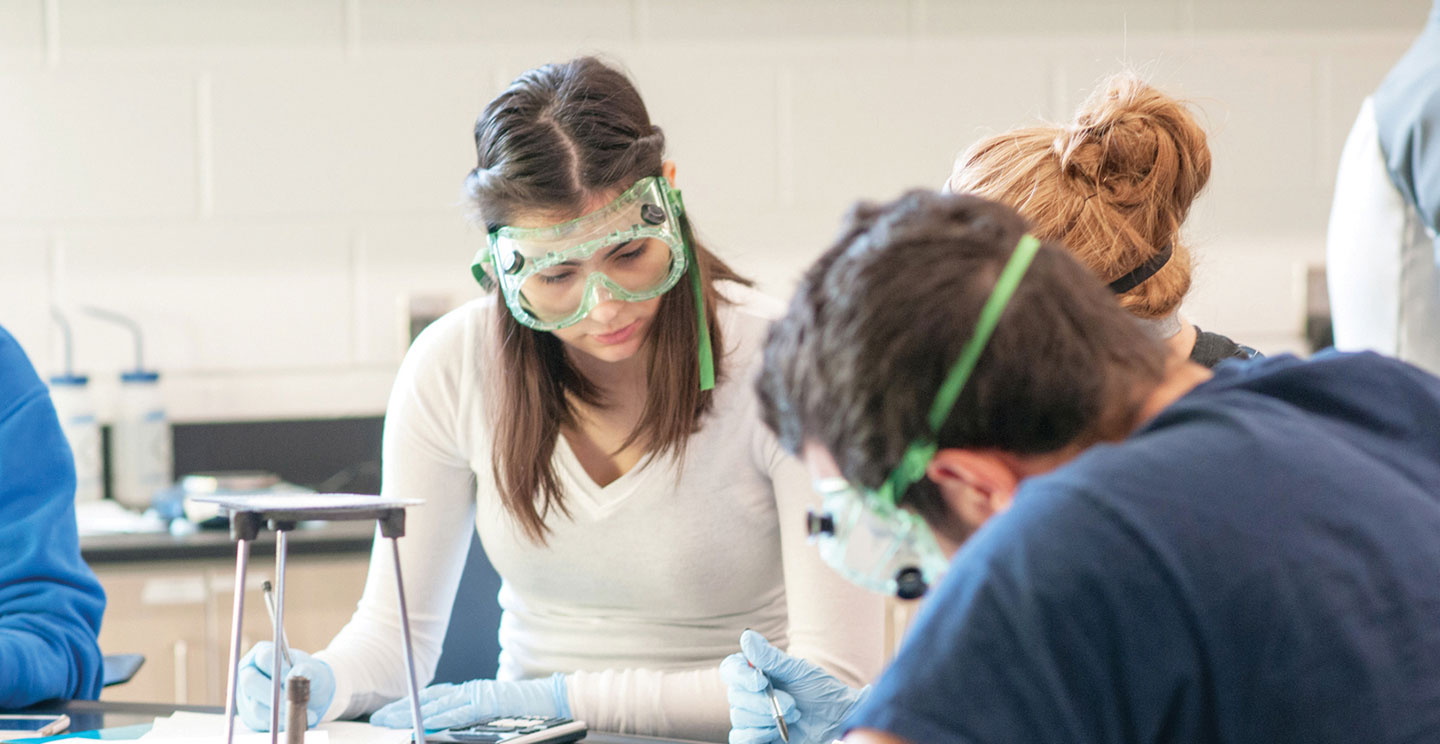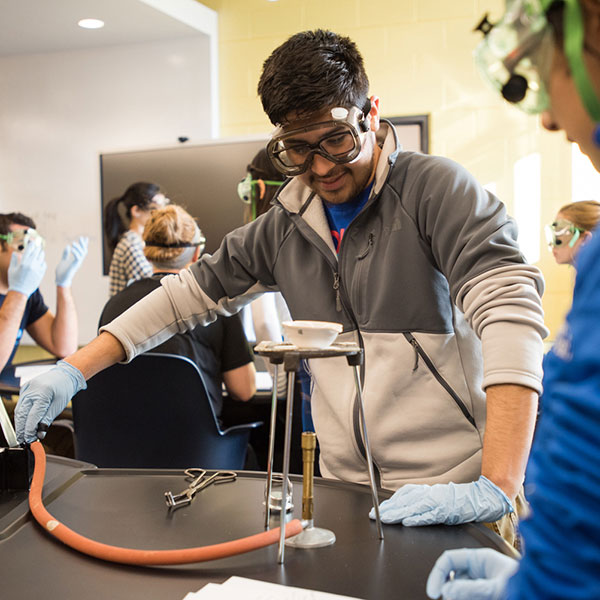Chemistry (BS, Minor)

Why study Chemistry?
Chemistry is the study of virtually everything in nature — a study of the machinery of life — from the most basic matter to life’s most complex processes. Chemistry is everywhere in the world around you. If you want to pursue a career in the sciences, a strong knowledge of Chemistry is fundamental. Chemistry is sometimes called the “central science” because it is essential to so many other fields from biology to astronomy to engineering.
The Aurora University Chemistry program will provide you with the foundation to succeed in a wide array of scientific pursuits. As a Chemistry student, you will have the opportunity to conduct research in state-of-the-art science, technology, engineering, and mathematics (STEM) labs. In AU’s labs, you will gain hands-on experience with modern instrumental techniques, including powder X-ray diffraction, atomic absorption, Fourier transform infrared spectroscopy, gas chromatography, high-performance liquid chromatography, and differential scanning calorimeter (DSC).
AU’s Chemistry faculty have extensive professional experience and a strong commitment to teaching. They will lead your studies into advanced topics in Chemistry and help develop your knowledge in spectral analysis, chemical literature, and chemical research.
By studying Chemistry, students will receive the skills employers most desire: the ability to communicate ideas, analyze problems, and work with others to find a solution. In a job market that is constantly changing and evolving, you’ll have the knowledge and tools to succeed. Your training will prepare you to work in myriad positions, including jobs that find cures for diseases, protect the environment against chemicals, and research renewable energy sources. AU Chemistry students have gone on to careers in medicine, manufacturing, government, technology, education, pharmaceuticals, and education.
Students studying chemistry can also expand their opportunities with a double major in Biology, Health Science, or Secondary Education. Even with a second major, you’ll still be able to graduate in four years.
AU’s Chemistry program gave me the foundation to think critically, solve complex problems, and adapt — skills that are essential in both research and medicine.Phuong Pham '22
annual median salary for chemists and materials scientists
2024-2034 projected job growth rate
- Analytical chemistry
- Biochemistry
- Calculus
- Inorganic chemistry
- Instrumental analysis
- Aurora University Science Organization
- Mu Sigma Pi: Mind. Body. Spirit.
Robert Noyce STEM Teacher Scholarship Program
AU is a recipient of a National Science Foundation Robert Noyce Teacher Scholarship Program grant designed to help address the nationwide shortage of high-quality teachers in science, technology, engineering, and math, particularly among groups underrepresented in STEM fields. The program, known as Noyce Scholars, is open to select Biology, Chemistry, and Mathematics majors entering their junior year at AU. Noyce Scholars will receive an annual undergraduate scholarship of up to $18,000 for the last two years of their secondary education program. Interested students can visit our Noyce Scholars page to view eligibility requirements and apply.

Experiential learning
Chemistry students will work and study in AU’s modern labs, while also having access to industry and national laboratories in the Chicagoland area — Fermilab is only nine miles from campus, while Argonne National Laboratory is merely 31 miles away. Our faculty will guide you toward enriching internships that will help you apply the knowledge you gained and experience firsthand how chemistry can be applied in the real world. You will have opportunities to take part in 8-week applied learning experiences (ALE) through AU collaborations with industry partners. You will gain industry experience by working directly with scientists in their chosen field.
Career possibilities
- Chemical engineer
- Chemist
- Chemistry teacher
- Environmental scientist
- Food science technician
- Forensic scientist
- Health care technician
- Material scientist
- Pharmaceutical technician
- Plastics chemist
Where our graduates intern and work
- Argonne National Laboratory
- Entegris
- Fox Metro Water Reclamation District
- McCormick FONA International
- National Science Foundation Research Experiences for Undergraduates (REU)